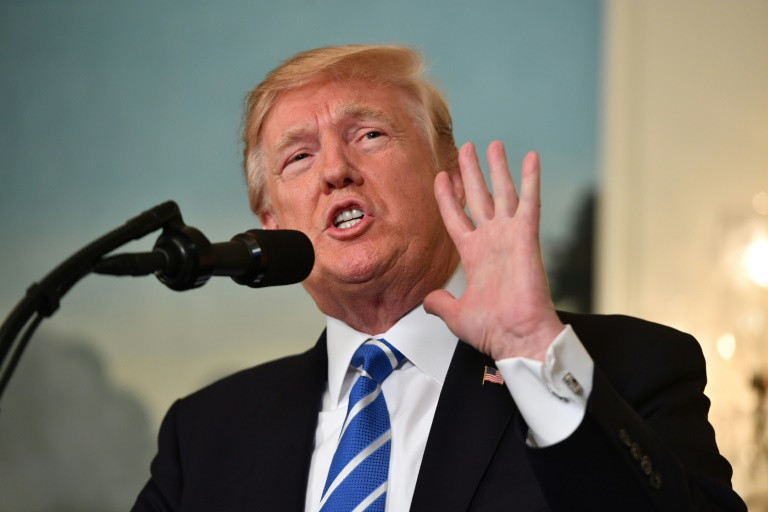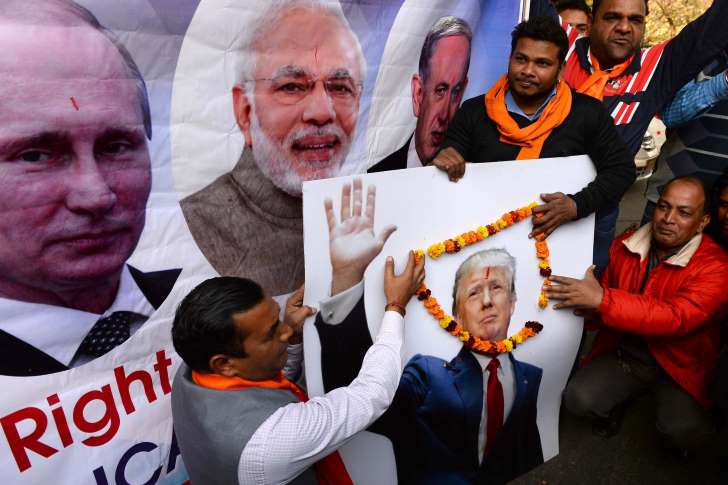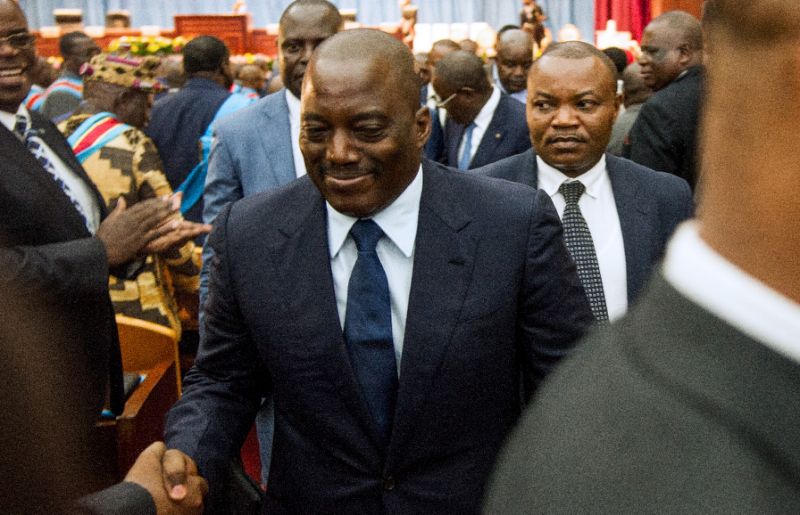Réaction de la présidence à l’ultimatum lancé pour le 15 août : IBK demande à rencontrer la Plateforme « Antè A Bana » dans un bref délai

Hier, jeudi 10 août 2017, la Plateforme « Antè A Bana : Touche pas à ma constitution » a organisé une assemblée générale couplée d’une conférence de presse à la Pyramide du Souvenir de Bamako pour partager avec la presse le contenu de leur lettre ouverte adressée au président de la République, Ibrahim Boubacar Keïta (IBK). Dans cette lettre ouverte, la Plateforme exige du président IBK le retrait pur et simple du projet de révision constitutionnelle (Loi n°2017-031/AN-RM du 2 juin 2017 portant révision de la Constitution du 25 février 1992) au plus tard le mardi 15 août 2017 à minuit. Passé ce délai, la Plateforme « Antè A Bana : Touche pas à ma constitution » se réserve le droit d’user de tous les moyens que lui offrent la Constitution du 25 février 1992 et les lois de la République afin de faire aboutir ses revendications. A l’échéance de l’ultimatum du 15 août prochain lancé au président IBK, la Plateforme menace même de mener la désobéissance civile. Ayant pris au sérieux de cet ultimatum, le président IBK a demandé à rencontrer la plateforme. Ladite rencontre doit se tenir la semaine prochaine. «Dès que notre ultimatum est tombé, deux heures après, le président a demandé à rencontrer la Plateforme », a indiqué Djiguiba Keïta (PPR), l’un des responsables de la Plateforme.
Cette conférence de presse était animée par le vice-président de la Plateforme « Antè A Bana : Touche pas à ma constitution », l’honorable Amadou Thiam, en présence de Tiébilé Dramé et de Diguiba Keïta alias PPR du Parena, de Mamadou Hawa Gassama Diaby de l’URD, du Chroniqueur Ras Bath, de l’artiste Master Soumi, du juriste Bréhima Fomba, du Syndicaliste Kalapo et de Mme Kadidia Fofana de ladite Plateforme. Les travaux ont débuté par l’exécution de l’hymne national du Mali et l’observation d’une minute de silence en la mémoire des disparus. Dans son speech, l’honorable Amadou Thiam a fait savoir qu’après la tenue de 4 grandes activités (marche du 15 juin 2017, meeting du 1er juillet 2017, marche du 15 juillet 2017, meeting du 03 août dernier), la Plateforme a été surprise par le « mépris du président IBK ». « C’est pourquoi nous avons décidé à l’unanimité de lancer un ultimatum au président de la République. Nous avons décidé à l’unanimité lors de notre Assemblée générale du 07 Août 2017 d’exiger du Président de la République, SE Ibrahim Boubacar KEITA, le retrait pur et simple de son projet de révision constitutionnelle au plus tard le mardi 15 août 2017 à minuit. Cet ultimatum a déjà fait son effet. Le président IBK (à travers la correspondance du secrétaire général à la présidence, Soumeylou Boubèye Maïga mercredi dans l’après midi) demande à rencontrer la Plateforme. La dite rencontre doit se tenir la semaine prochaine. Nous lui avons demandé de nous adressées une lettre. Et cette correspondance sera analyser par le directoire, mais notre position reste inchangée à savoir le retrait pur et simple du projet de révision constitutionnelle. A l’expiration de cet ultimatum, nous utiliserons tous les moyens constitutionnels pour faire prévaloir nos revendications », a-t-il dit. Après cette brève déclaration, la lettre ouverte adressée au président IBK a été lue par Mme Kadidia Fofana de la Plateforme. L’objet de cette lettre ouverte en date du 7 août 2017 est le retrait pur et simple du projet de révision constitutionnelle (Loi n°2017-031/AN-RM du 2 juin 2017 portant révision de la Constitution du 25 février 1992). « Nous, Plateforme « Antè A Bana » : touche pas à ma constitution » avons décidé à l’unanimité lors de notre Assemblée générale du 07 Août 2017 d’exiger du Président IBK, le retrait pur et simple de son projet de révision constitutionnelle au plus tard le mardi 15 août 2017 à minuit. Nous avons également décidé lors de cette Assemblée générale de signifier au Président de la République qu’à défaut d’une réponse favorable dans ce délai imparti, la Plateforme qui assimilerait ce refus à une atteinte grave à la Constitution du Mali, se réserve le droit d’user de tous les moyens que lui offrent la Constitution du 25 février 1992 et les lois de la République afin de faire aboutir ses revendications légitimes», ressort en substance la lettre ouverte lue par Mme Kadidia Fofana de la Plateforme. Le syndicalisme Kalapo est revenu sur cette lettre ouverte en langue bambara. « Nous nous battons pour que le président IBK retire son projet de révision », a-t-il dit.
La Plateforme menace de mener la désobéissance civile
En réponse aux questions des journalistes, l’honorable Thiam a rassuré que la plateforme est unie et engagée. « Nous avions eu des discussions avec l’ambassade de France et à d’autres chancelleries. Nous allons continuer à faire comprendre à la communauté internationale que ce projet n’est pas bon pour le Mali », a-t-il dit. Par ailleurs, il dira que le MOC (Mécanisme opérationnel de coordination) n’est pas opérationnel, la conférence d’entente nationale n’a pas pu trouvée une solution au problème de l’Azawad. Pour preuve, dit-il, après ladite conférence d’entente nationale, le MNLA (Mouvement national pour la libération de l’Azawad) a fêté l’indépendance à Kidal. « Tenir le referendum dans ces conditions serait de trahir l’accord de paix et le peuple malien… Si nous allons au referendum des ces conditions, Youwarou, Kidal et d’autres localités qui n’ont pas d’administration ne pourront pas voter. Le président de la République allait les priver de leur droit de vote. Voila pourquoi la plateforme s’insurge contre le référendum afin que toutes les conditions soient réunies pour que tout le monde puisse voter… L’objectif, c’est le retrait, et nous allons vers le retrait », a-t-il martelé. A l’en croire, lors du tête- à-tête entre le chef de file de l’opposition, l’honorable Soumaïla Cissé et le président IBK dans un passé récent, l’honorable Cissé a demandé au président IBK de rencontrer l’opposition et la Plateforme « Antè A Bana : Touche pas à ma constitution ». A la suite de Thiam, le juriste Bréhima Fomba a rappelé que le peuple est détenteur du pouvoir. Concrètement quel est le moyen constitutionnel que la Plateforme va mener pour la satisfaction de ses revendications ? Répondant à cette question, le juriste Fomba dit ceci : « Nous sommes des stratèges, nous n’allons pas étaler toutes nos stratégies. Nous allons utiliser tous les moyens que la constitution nous offre. La gamme supérieure est la désobéissance civile (article 121 de la constitution de 1992). L’Etat de droit est le respect de la constitution, et on révise cette constitution en violation de l’article 118 », a-t-il martelé. Selon lui, la cour constitutionnelle s’est mise dans une situation intenable. « Nous invitons le président IBK à surseoir à cette révision constitutionnelle. Nous invitons le président IBK d’avoir la sagesse telle que Alpha Oumar Konaré avait eu en 2001 en retirant son projet de révision constitutionnelle », a-t-il déclaré. Pour l’artiste Master Soumi, le seul mot est le retrait du texte. Avant de signaler que les maliens ont beaucoup de défis à relever dont le développement économique. Quant à Djiguiba Keïta alias PPR, il a demandé aux militants de faire confiance à la Plateforme. « Dès que notre ultimatum est tombé, deux heures après, le président a demandé à rencontrer la Plateforme. Il a compris le message. Seule la lutte paye. Surtout que nous sommes adossés au peuple », a-t-il dit. Pour sa part, le chroniqueur Ras Bath, a souligné que le retrait de ce texte sera salutaire. Aux dires de Ras Bath, la constitution élaborée par Me Celcalldi de la France est différente de celle détenue par le gouvernement malien. « Me Cecalldi a dit que IBK est otage de la communauté internationale. Me Cecalldi a dit que le Mali n’a pas les moyens financiers pour supporter le coût de la décentralisation inclues dans cette révision constitutionnelle. IBK s’est engagée devant la communauté internationale à réviser la constitution avant le 31 octobre. Il est dans le déni de démocratie », a martelé Ras Bath.
Aguibou Sogodogo




